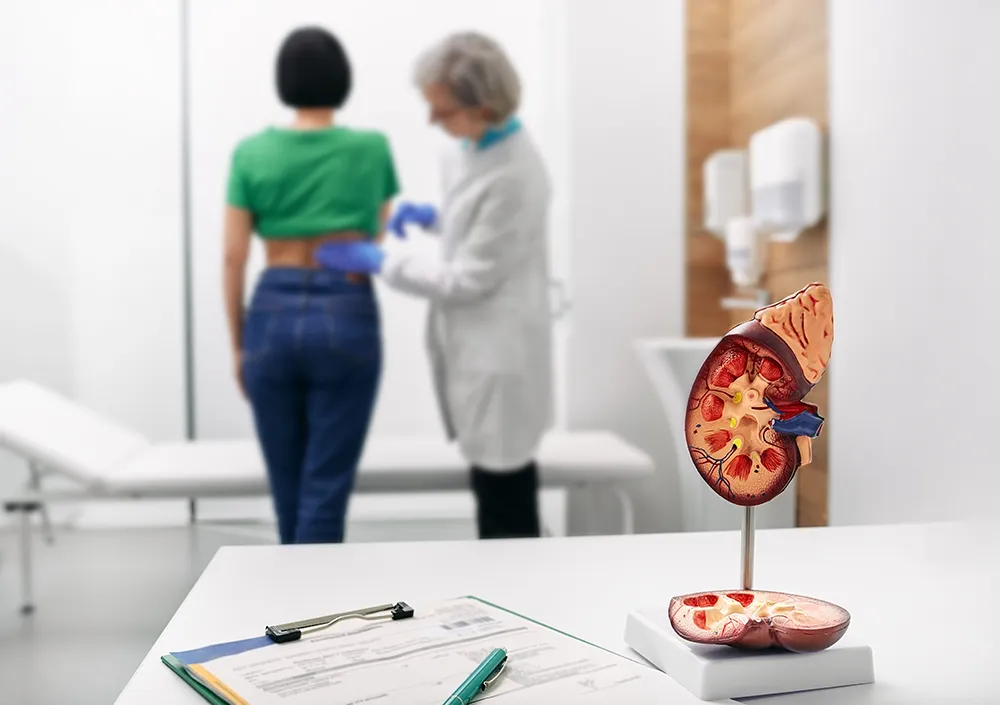Identifying Risks/Testing
When you visit your nephrologist (kidney specialist), they’ll run tests to assess your kidney function.
The most important measure is your GFR (Glomerular Filtration Rate). This shows how well your kidneys are filtering your blood. Knowing your GFR helps your nephrologist determine your kidney disease stage and develop a treatment plan.
There are five stages of GFR
- Stage 1: Normal kidney function (GFR > 90)
- Stage 2: Mild decrease (GFR 60-89)
- Stage 3: Moderate decrease (GFR 30-59)
- Stage 4: Severe decrease (GFR 15-29)
- Stage 5: Kidney failure (GFR <15)


Protecting Your Kidneys
Your kidneys perform vital functions, which include cleaning your blood, balancing minerals, and producing hormones that keep your bones strong and help make red blood cells. When they’re not working properly, waste can build up, blood pressure may rise, and your body can retain excess fluid.
Several health conditions increase your risk of kidney problems
High Blood Pressure
High blood pressure can damage the kidney vessels over time
Diabetes
Diabetes affects the filtering units in your kidneys
Being Overweight
Being overweight puts additional strain on your kidneys
Regular monitoring of these conditions helps protect your kidney health. If your kidneys do reach failure, treatments like dialysis become necessary to take over their essential functions. Kidney diagnosis can be overwhelming. Your healthcare team is here to support you with personalized care, including dietary guidance from specialists who understand kidney health. Remember–you’re not in this alone.


